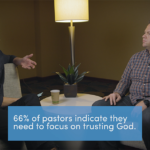
GLOBAL MIGRATION IS GIVING THE CHURCH AN INCREDIBLE OPPORTUNITY TO SHARE THE GOOD NEWS WITH THE WORLD
By Jenny Yang
Tinkering with cars in South Korea changed the trajectory of my father’s life. An orphan in a desperately poor country, he faced a bleak future—until he won a national car repair competition, and a judge offered to take him to the land of his childhood dreams.
In America, he struggled to learn English and find community. Yet he held a steady job at Ford Motor Company and eventually started his own business. He served in a church that has since grown to be one of the largest Korean churches in the Philadelphia area.
His story echoes the experiences of thousands who come to the United States seeking a better life. The challenges of integration are real, but the opportunities are even greater.
The migration of people, whether forced or voluntary, should be viewed not as accidental but as part of God’s sovereign plan. Scripture tells us God determines the times and places people live “so they might seek God, and perhaps they might reach out and find Him” (Acts 17:27).
As believers we are called to make disciples of all nations (Matthew 28:19); with immigration, the nations show up on our doorstep. The mission field has crossed our borders and settled into our communities as our co-workers and neighbors.
For Christians committed to reaching the nations for Christ, this should be exciting news. Immigrants are not only open to hearing the gospel but are themselves transforming the Christian landscape in America.
The changing American landscape
The United States is seeing one of the greatest demographic shifts in its history. Since 1970, the foreign-born share of the population has nearly tripled. By 2060, the U.S. Census Bureau predicts, nearly 1 in 5 residents will be foreign-born.
In addition to European, Latino, and Asian immigrants, large numbers of people are arriving from “nontraditional” linguistic, ethnic, and cultural backgrounds. Cities like Detroit and Minneapolis boast significant numbers of Iraqis and Somalis, respectively.
While immigrants continue to move to traditional “gateway cities” like New York, Los Angeles, and Chicago, many are dispersing to suburban and rural areas of the Southeast and Midwest.
In the past 15 years, for example, the foreign-born population of Gwinnett County, Georgia, outside Atlanta, has more than doubled. Similar increases have been seen in such cities as Scranton, Pennsylvania; Indianapolis, Indiana; and Des Moines, Iowa.
While some people migrate for educational or vocational opportunities, most migrate due to economic issues or political crises. Many would prefer to stay in their countries of origin, but they can’t find work to support their families or they fear for their lives.
Attitudes of Evangelicals toward immigrants
Some evangelicals are uneasy about the number of recent immigrants to the United States, Lifeway Research found in February 2015. Nearly half (48 percent) said immigrants drain the country’s economic resources. However, 42 percent see opportunities to introduce recent immigrants to Jesus Christ and 40 percent see opportunities to show them love.
Lifeway Research also found almost 7 in 10 (68 percent) evangelicals believe it’s important for Congress to pass significant new immigration legislation. More than two-thirds support immigration law changes that both increase border security and provide a path to citizenship.
More evangelicals say their views on immigration are most influenced by the media than by the Bible, their local church, and national Christian leaders combined, according to the Lifeway study.
Two-thirds of evangelicals (68 percent) say their church has never encouraged them to reach out to immigrants. The same percentage said they would value hearing a sermon about how biblical principles and examples can be applied to immigration.
The Church’s attitudes and actions toward immigrants have an enormous impact on how immigrants hear the message of the gospel.
Biblical and missional implications
To view immigrants as part of God’s greater missional purposes, Christians must consider biblical principles and God’s greater purposes in the movement of people.
It’s clear throughout Scripture, God cares for the immigrant. In the Old Testament, the stranger is frequently mentioned alongside widows and orphans as people who were particularly vulnerable because they often lacked family members to take care of them or property to become self-sufficient.
In Matthew 25, God commands us to extend hospitality (literally, the love of strangers)—with the suggestion they may bless us more than we assist them. Scripture is a story of people in exile and on the move, and many prominent characters in the Bible had a migration experience that was fundamental to their experience of God.
Current migration patterns mean the mission field is coming to us. Thousands are arriving from nations such as China, Saudi Arabia, and Iran where missionary access has been difficult or denied. Many represent unreached people groups.
In the United States, immigrants experience a freedom they often did not have in their countries of origin, allowing them to find Christ and worship freely. When God moves people, making them accessible to believers, the church has a divine opportunity to reach them with the gospel.
Evangelical churches ministering to immigrants are seeing tremendous fruit born of their efforts. For instance, a number of interdenominational churches in Montgomery, Alabama, collaborated to serve the more than 3,000 Mixteco people who live in central Alabama. The Mixteco are a largely unreached people group from Mexico.
“Christians in Montgomery are working hard to invest in relationships and build trust while sharing the gospel as the opportunity occurs,” says Lisa Rose, who leads Montgomery’s Mixteco interdenominational task force.
“We serve them by providing English as a Second Language (ESL) and health classes, as well as helping them navigate immigration laws. Something as simple as assisting in filling out paperwork can go a long way to developing relationships.”
Willow Creek Community Church, outside of Chicago, serves the growing immigrant population in South Barrington at its Care Center, providing food, ESL classes, and legal services. Its Spanish-speaking ministry, Casa de Luz, has grown from a small ministry to one with several hundred members and its own Spanish-speaking pastor.
God’s hand is moving in diaspora communities to come to know Him in a real way, and He has called His body to welcome and bless the nations of the world arriving in our neighborhoods.
Christians on the move
Although thousands of Hindus, Buddhists, Muslims, and people of no particular faith come to the United States, nearly three-quarters of immigrants are self-identified Christians.
In my family’s case, my father became an orphan at age 8 in South Korea, but my grandmother had already instilled in him a faith in the Lord, as she herself had come to know Christ through American Christian missionaries in Korea.
The fact that a majority of immigrants adhere to Christianity suggests immigrants will be not only a mission field but also agents of mission.
Immigrant congregations are growing more quickly than any other segment of American evangelicalism. Many churches are experiencing tremendous growth by intentionally welcoming and integrating immigrants into their faith communities. In doing so, pastors and lay members are personally seeing God’s providential workings in the migration of people.
Missiologists around the world recognize God is drawing people to Himself through ministry to, through, and beyond diaspora communities. Diasporas will continue to be an indispensable means by which God accomplishes His redemptive purposes through Jesus Christ.
The global migration of people provides an incredible missional and transformational opportunity for the Church to expand God’s kingdom.

Jenny Yang
Jenny works in external relations for the United Nations Refugee Agency and is the co-author of Welcoming the Stranger: Justice, Compassion & Truth in the Immigration Debate. Previously, she served as vice president for advocacy and policy at World Relief.











